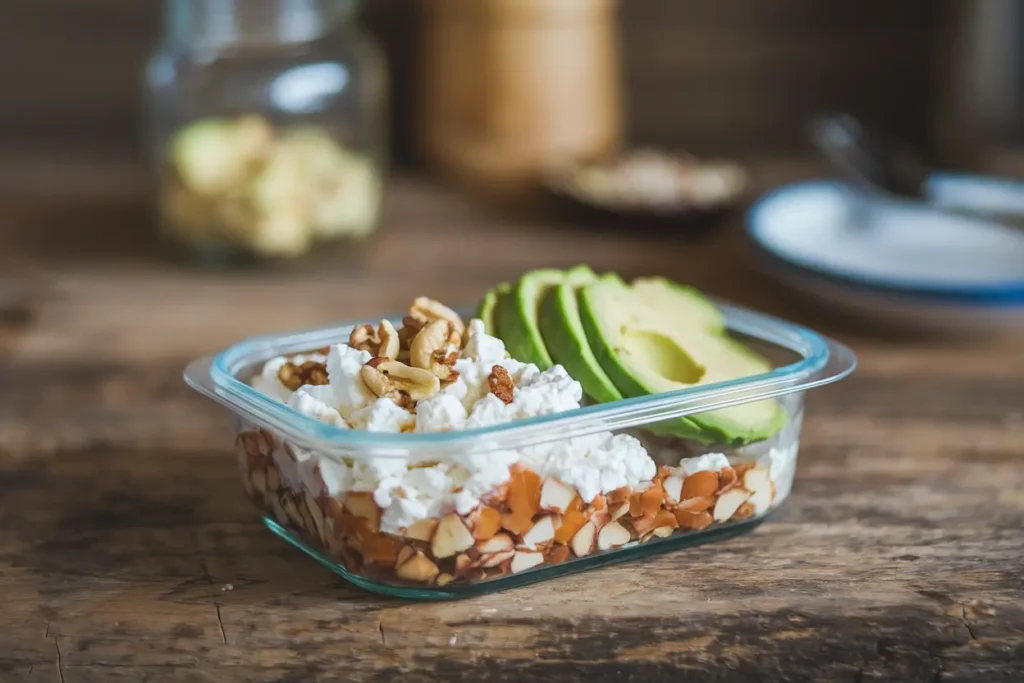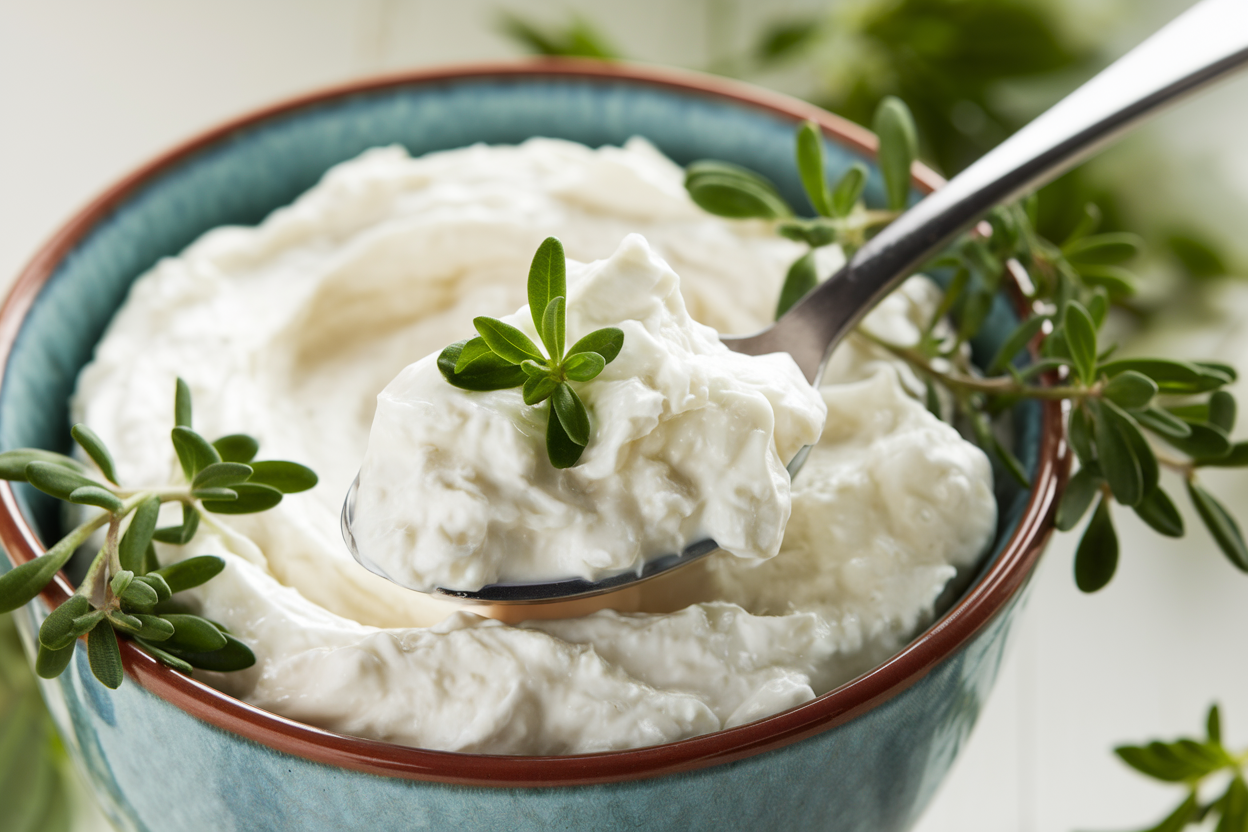Table of contents
- Introduction to Cottage Cheese and Its Benefits
- Nutritional Profile of Cottage Cheese
- Health Benefits of Eating Cottage Cheese
- Cottage Cheese in Special Diets
- Common Concerns About Cottage Cheese
- Delicious Ways to Incorporate Cottage Cheese into Your Diet
- Tips for Buying and Storing Cottage Cheese
- Frequently Asked Questions About Cottage Cheese Benefits
- Conclusion: Why Cottage Cheese Deserves a Place in Your Diet
Introduction to Cottage Cheese and Its Benefits
What Is Cottage Cheese?
Cottage cheese is a creamy, mild-tasting cheese that’s made from curds of pasteurized milk. It has a soft, lumpy texture and a slightly tangy flavor that makes it both unique and versatile. Known for its rich nutritional profile, cottage cheese has been a dietary staple for decades, often seen as the ultimate health food. Whether you’re a fitness enthusiast or just looking for a quick snack, cottage cheese has something to offer everyone.
“Cottage cheese is like the Swiss Army knife of dairy—it’s simple, versatile, and packed with benefits.”
Why Is Cottage Cheese So Popular?
Why do so many people swear by cottage cheese? It’s all about versatility and health benefits. Cottage cheese is not only incredibly nutritious but also fits into a wide range of diets. From weight loss programs to muscle-building regimens, it’s a go-to food for those looking to eat healthily without sacrificing taste.
Nutritional Profile of Cottage Cheese
High Protein Content
One of the standout benefits of cottage cheese is its high protein content. A single cup can provide up to 28 grams of protein, making it a favorite among athletes and fitness enthusiasts. Protein is essential for building and repairing muscles, and cottage cheese delivers it in a delicious, low-calorie package.
Rich in Calcium and Bone Health Benefits
Calcium is another major benefit of cottage cheese. This mineral plays a crucial role in maintaining strong bones and teeth. A single serving can contribute up to 14% of your daily calcium needs, which is especially important for growing teens and aging adults.
| Nutritional Component | Per 1 Cup (Approx.) |
|---|---|
| Protein | ~28g |
| Calcium | ~14% of Daily Value |
| Calories | ~220 |
| Fat | ~5g |
| Carbohydrates | ~6g |
Low in Calories and Fat (Depending on Variety)
For those watching their calorie intake, cottage cheese is a dream come true. Low-fat or fat-free options are widely available and offer all the nutritional benefits without the extra calories. Even full-fat versions are relatively low in calories compared to other cheeses, making them a satisfying yet healthy choice.
“Cottage cheese proves that eating healthy doesn’t have to be boring—it’s proof that good food can be good for you!”
Health Benefits of Eating Cottage Cheese
Supports Weight Loss and Management
If weight loss is your goal, cottage cheese should be on your shopping list. Its high protein content keeps you feeling full, reducing the chances of overeating. Plus, its low-calorie nature makes it a guilt-free snack or meal addition. Pair it with fruits or vegetables for a balanced, filling option.
Promotes Muscle Growth and Recovery
For anyone trying to build muscle, cottage cheese is a must-have. It contains casein, a slow-digesting protein that provides a steady release of amino acids to support muscle recovery and growth. This makes it an excellent post-workout snack or even a pre-bedtime treat to fuel your body overnight.
Boosts Digestive Health
Cottage cheese contains probiotics—live bacteria that promote a healthy gut. These probiotics can help improve digestion, boost immunity, and even enhance nutrient absorption. For the best results, choose varieties labeled with “live and active cultures.”
Provides Essential Vitamins and Minerals
In addition to protein and calcium, cottage cheese is rich in essential vitamins and minerals like vitamin B12, phosphorus, and selenium. These nutrients support energy production, cell repair, and overall health, making cottage cheese a small but mighty addition to your diet.
Cottage Cheese in Special Diets
Is Cottage Cheese Good for a Low-Carb or Keto Diet?
Yes, cottage cheese is an excellent choice for low-carb or keto diets. With only about 6 grams of carbohydrates per cup, it fits well within the daily carb limits of these plans. The high protein and fat content in full-fat varieties also align perfectly with keto principles, providing a satisfying and energy-boosting food option. Pair it with low-carb veggies like cucumbers or celery for a simple yet delicious snack.
Can Lactose-Intolerant Individuals Eat Cottage Cheese?
If you’re lactose intolerant, you might still be able to enjoy cottage cheese. While it does contain some lactose, many people find it easier to digest compared to milk. Opt for lactose-free cottage cheese varieties, which are widely available, or consult your doctor to see if small portions are suitable for you.

Cottage Cheese in High-Protein Diets
For anyone following a high-protein diet, cottage cheese is a powerhouse. Its high protein content makes it ideal for building and maintaining muscle mass. Unlike some other high-protein foods, it’s also low in calories, making it a balanced addition to any meal. Try adding it to your pre- or post-workout routine for optimal muscle recovery.
Common Concerns About Cottage Cheese
Is Cottage Cheese High in Sodium?
One of the most common concerns about cottage cheese is its sodium content. Many store-bought varieties can be high in sodium, which may not be ideal for those monitoring their salt intake. To address this, look for low-sodium options or rinse the curds under water before eating to reduce the sodium levels without compromising taste.
Texture and Taste: Overcoming Personal Preferences
Some people are put off by the lumpy texture or tangy taste of cottage cheese. If this sounds like you, blending it into a smooth consistency can make it more appealing. Use the blended version as a base for smoothies, dips, or creamy sauces. Adding flavor enhancers like honey, herbs, or fresh fruit can also mask the tanginess.
Choosing Between Full-Fat and Low-Fat Options
Deciding between full-fat and low-fat cottage cheese depends on your dietary goals. Full-fat options are richer and creamier, making them perfect for keto diets or indulgent recipes. Low-fat or fat-free versions, on the other hand, are better suited for calorie-conscious individuals looking to manage their weight.
Delicious Ways to Incorporate Cottage Cheese into Your Diet
Sweet Pairings: Fruits, Honey, and More
Cottage cheese pairs beautifully with sweet ingredients like fresh fruits, honey, and cinnamon. Combine it with berries for a refreshing breakfast or drizzle it with honey for a quick, satisfying dessert. Adding granola or nuts can provide a crunchy texture that complements its creaminess.
Savory Pairings: Vegetables, Herbs, and Spreads
If you’re a fan of savory dishes, cottage cheese is just as versatile. Use it as a dip for raw vegetables like carrots and celery, or blend it with herbs to create a light, flavorful spread for sandwiches and crackers. It’s a simple way to add protein and flavor to your meals.
Using Cottage Cheese in Cooking and Baking
Cottage cheese isn’t just a topping—it’s a fantastic ingredient for cooking and baking. Use it as a creamy filling for lasagna, mix it into pancake batter for extra fluffiness, or bake it into muffins for a protein-packed twist. Its mild flavor and texture make it a secret weapon in the kitchen.

Perfect Pairings: What Goes Well with Cottage Cheese
Cottage cheese is one of the most versatile foods you can have in your kitchen. Whether you enjoy it sweet, savory, or somewhere in between, it’s the perfect base for a wide range of pairings. Sweet pairings like berries, honey, and granola are classic choices that bring out the creamy, tangy flavor of cottage cheese.
But have you ever tried pairing it with savory options like herbs, cucumbers, or roasted vegetables? These combinations not only add variety to your meals but also enhance the nutritional value. Curious about what other foods go well with cottage cheese?
Check out this article on AmoreRecipes for a comprehensive list of pairing ideas. It’s packed with creative suggestions to help you take your cottage cheese game to the next level. From breakfast bowls to dinner recipes, you’ll find inspiration for every meal of the day.
Tips for Buying and Storing Cottage Cheese
How to Choose the Best Cottage Cheese
When buying cottage cheese, quality matters. Look for brands with minimal additives and a short ingredient list—ideally just milk, cream, and salt. Opt for varieties with live and active cultures if you want the added benefit of probiotics. If sodium is a concern, check the label for low-sodium options. Always examine the expiration date and choose the freshest container available for the best taste and texture.
“Fresh cottage cheese is like a blank canvas—simple, versatile, and perfect for any meal.”
Proper Storage for Maximum Freshness
Storing cottage cheese correctly is essential to keep it fresh and flavorful. After opening, always keep it tightly sealed and refrigerated. Cottage cheese is best stored in the coldest part of the fridge, away from the door where temperature fluctuations occur. Stir it gently before serving to maintain its creamy consistency. If you notice a sour smell or watery separation, it’s time to discard it.
Frequently Asked Questions About Cottage Cheese Benefits
Is cottage cheese good for weight loss?
Yes, cottage cheese is an excellent food for weight loss. It’s low in calories and high in protein, which helps you feel full longer and reduces the likelihood of overeating. Pair it with fresh fruits or vegetables for a balanced, low-calorie meal or snack.
Can cottage cheese help build muscle?
Absolutely! Cottage cheese is rich in protein, including casein, a slow-digesting protein that supports muscle growth and recovery. It’s a favorite among athletes and fitness enthusiasts, especially as a post-workout snack or a bedtime protein source.
Is cottage cheese suitable for people with lactose intolerance?
Cottage cheese does contain some lactose, but many people with lactose intolerance can tolerate small amounts. There are also lactose-free varieties available that offer the same benefits without discomfort. Always check labels or consult your doctor if you’re unsure.
How much cottage cheese should I eat daily?
The amount of cottage cheese you should eat depends on your dietary goals and nutritional needs. Generally, one serving (about half a cup to one cup) per day is a great way to enjoy its benefits without overdoing it. Balance it with other protein sources and nutrients for a well-rounded diet.
Conclusion: Why Cottage Cheese Deserves a Place in Your Diet
The Versatility of Cottage Cheese
Cottage cheese isn’t just another food—it’s a nutritional powerhouse that adapts to any meal or snack. Its versatility allows it to shine in both sweet and savory dishes, from breakfast parfaits to creamy lasagnas. Packed with protein, calcium, and essential nutrients, it’s a small addition with big benefits.
Making Cottage Cheese Part of Your Healthy Lifestyle
Ready to embrace the goodness of cottage cheese? Start with simple pairings like fresh fruits or crunchy vegetables, and gradually explore its potential in more creative recipes. Whether you’re trying to lose weight, build muscle, or simply eat healthier, cottage cheese is a delicious and nutritious ally in your journey.
“Cottage cheese is more than just food—it’s your everyday companion for health, flavor, and creativity.”

